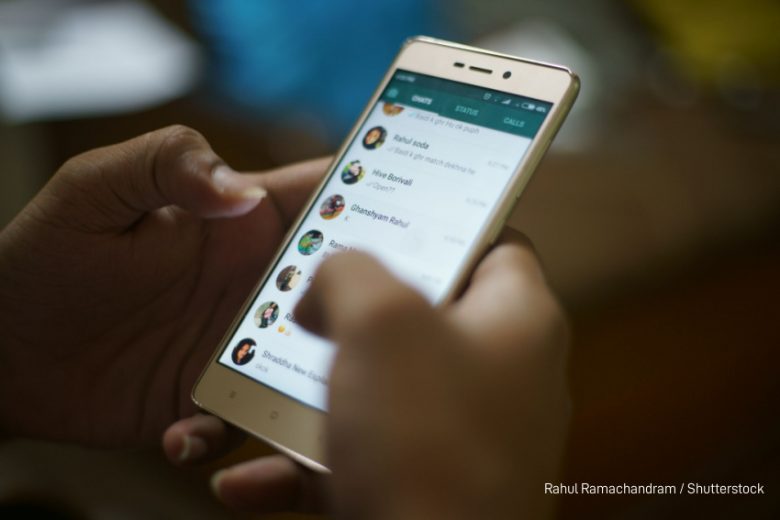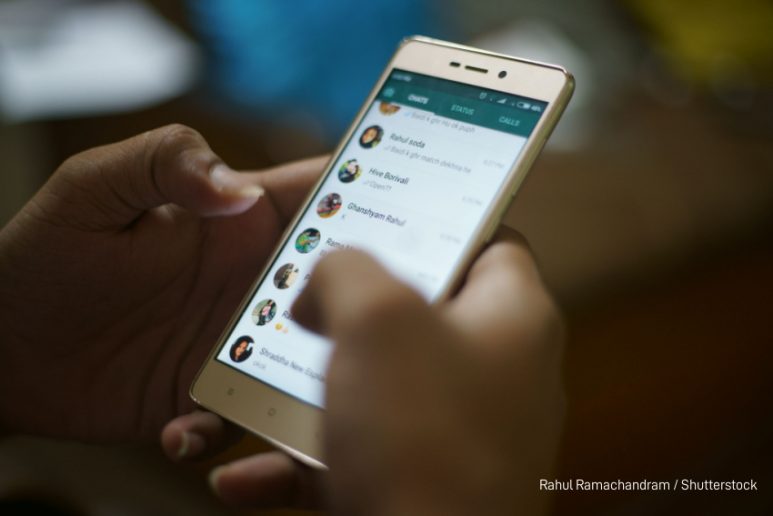By Joseph Monaghan
Between 2016 and 2018, 14 police officers at London’s Metropolitan Police were found to have sent dozens of messages via the instant messaging apps WhatsApp and Facebook Messenger, within group chats and individual conversations, that contained homophobic, ableist, racist and misogynistic language. One police offer was alleged to have sent messages to a female police officer claiming that ‘if he was single’, he would want to sexually assault her. This was later defended as ‘banter’ by the officers.
The police officers’ language to each other and about their partners and colleagues was derogatory and sometimes threatening. Some of the officers were later removed from their positions after the messages were discovered. However, most of the accused remain part of the police force, and one member of staff was even found to have been promoted.

The discovery of these messages led to a campaign by the Women’s Equality Party which involved signs around London asking passers-by if they were ‘disgusted’ by the messages shown, asking them to call the Home Secretary regarding what was referred to as ‘misogyny’ within an institution that needed to be ‘radically [overhauled]’.
Some questions could arise from this situation as to what role instant messaging apps have to play. First and foremost, in terms of the apps themselves, WhatsApp was the most downloaded consistently from 2016-2019 across the world, and there are more users of apps like WhatsApp and Facebook Messenger than there are users of Twitter and Instagram, which gives some indication as to how significant these applications are within everyday communication. There is no censorship from WhatsApp itself regarding any particular kind of messages, and text or visual information sent in conversation is private and encrypted. WhatsApp will only give information to law enforcers if requested to regarding content that has been reported.
Facebook Messenger is slightly different in the sense that Meta has implemented technology to detect illegal sexual content on its site, in a way that other more encrypted messaging apps have not. There are millions of reports sent to WhatsApp and Facebook every year regarding hate speech and any other illegal content, and this is often forwarded to relevant crime agencies and bodies. In the instance of the Met Police officers using hate speech in their conversations, this was only discovered because it had been reported by someone working for the Met Police.
Sometimes however, increasingly popular apps like Signal and Telegram, renowned for being very private in comparison to other apps, offer less protection if a person were to report hate speech or illegal content, because of how the apps are built to work. With an app like Wickr, owned by Amazon, there is no need to use a telephone number to sign up, and messages can be automatically set to delete themselves within a few days or even 12 hours. Wickr respond to requests from law enforcers when it comes to any reports of hate speech or illegal content, but because of the level of encryption, it can be difficult for justice to be obtained for the victim in any way. There have even recently been reports of racism and sexual harassment within the virtual reality program of the Metaverse.
On the flipside of this, although it is true that secure messaging apps that are encrypted are used by an indistinguishable amount of people sharing illegal content and engaging in illegal behaviours, the secure communication also allows for very important information to be shared confidentially for government bodies, journalists, and whistle-blowers.
It is possible that when having discussions around private messaging apps for certain nuances to be lost. Encrypted apps can foster extremism, hate speech and illegal behaviours. They can also offer people the protection they need to distribute information that can ultimately aid a country’s democratic freedom. Some countries like Iran and Russia have restricted or attempted to block the use of end-to-end encrypted app Telegram. In China, the service WeChat has to comply with the governing law in the country and this enables the state to directly monitor the behaviours of its users.
However, as Nina Jankowicz, a Wilson Center disinformation researcher, observes about the use of encrypted apps like Telegram ―
‘Terrorists use it, ISIS used it, but also it was the main vector for which protests in Belarus were organized this summer. We need to be able to preserve these mass methods of communication, and also somehow crack down on content that poses a threat to public safety or democracy‘.
Some private websites and forums online use word blocks on their sites so that certain terms of hate speech are hidden automatically from posts, but this approach has not been taken on by the most common instant messaging apps like WhatsApp or Facebook Messenger, or other encrypted apps. In India, there have been many mobs and lynches that have taken place as a consequence of misinformation being shared online that cannot be blocked from being forwarded due to the nature of WhatsApp and how it is used. There are almost 500 million users in India who have access to the app and can receive this information from people they know. The false and damning information is often believed because it is coming from users they trust, but this is something that has very disturbing consequences.
Or perhaps it is an unfortunate reality, and one that we would rather not admit to ourselves, that instant messaging apps and the behaviour that occurs on them can often be a mirror to the darker aspects of society and social behaviours.
As Eve Livingston notes in her 2016 article for The Guardian when discussing the dating app Tinder, which allows users to contact their ‘matches’ once they have connected, ‘The fact is, though, that while it’s convenient to blame technology… for misogynistic and predatory behaviour, these apps are quite simply new platforms for very old attitudes‘.
Photo Credits: Rahul Ramachandram / Shutterstock

